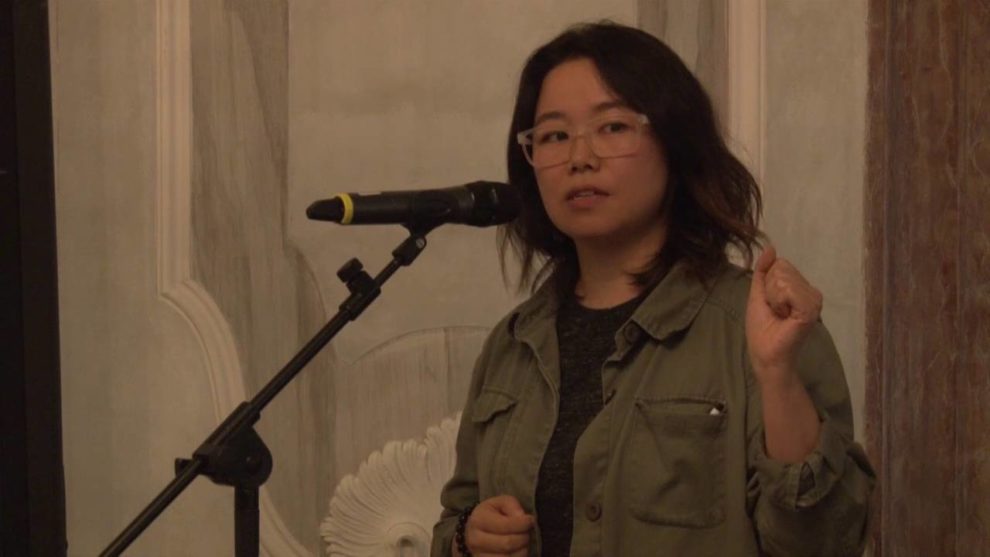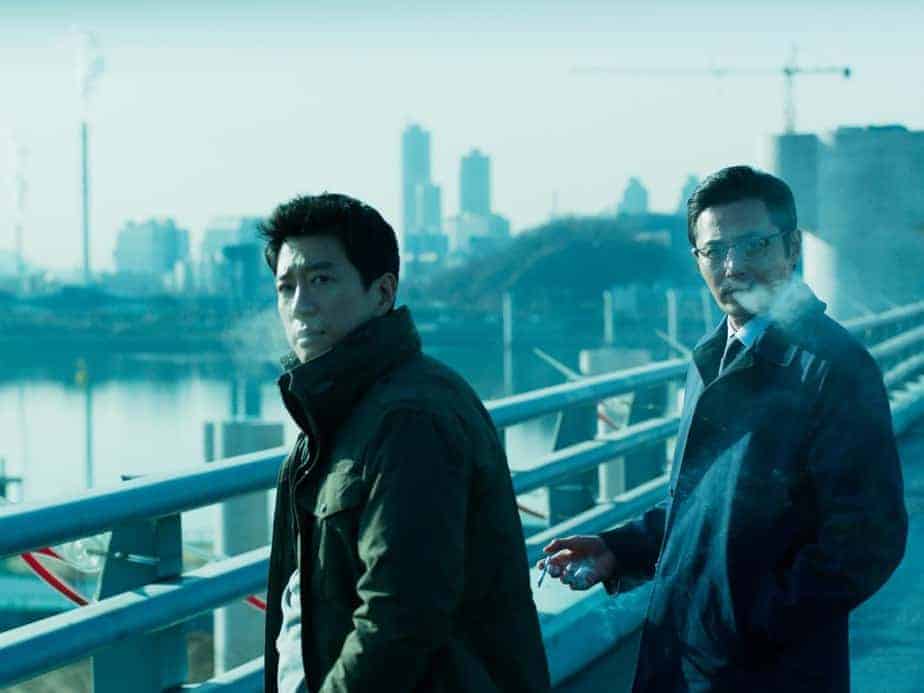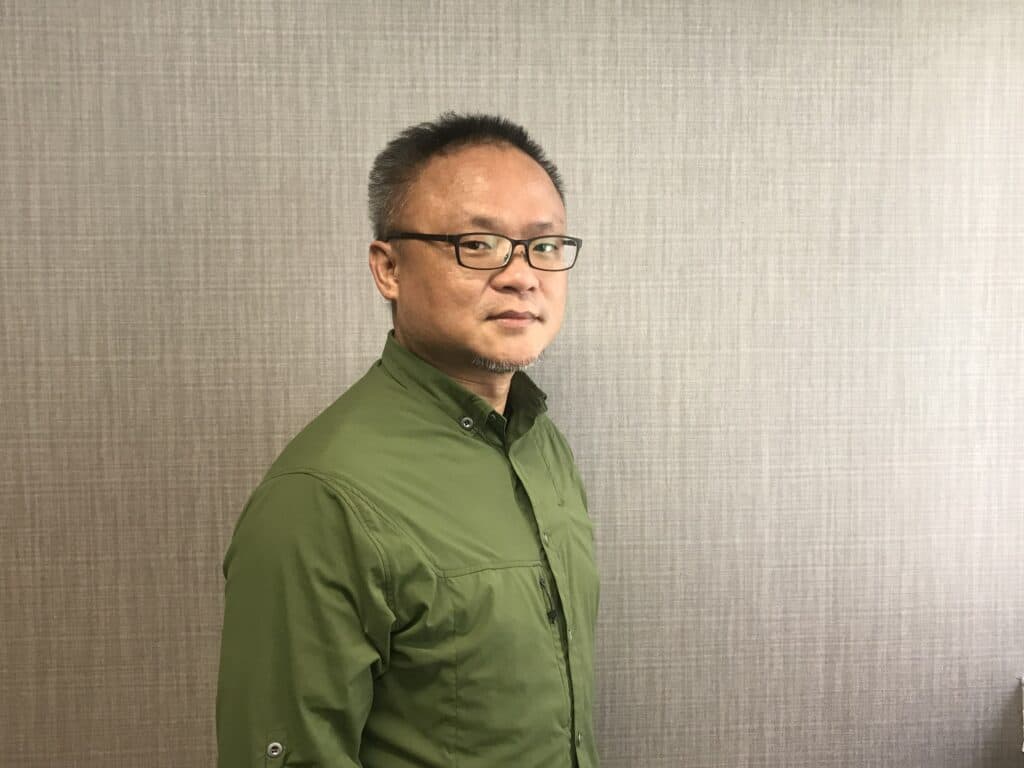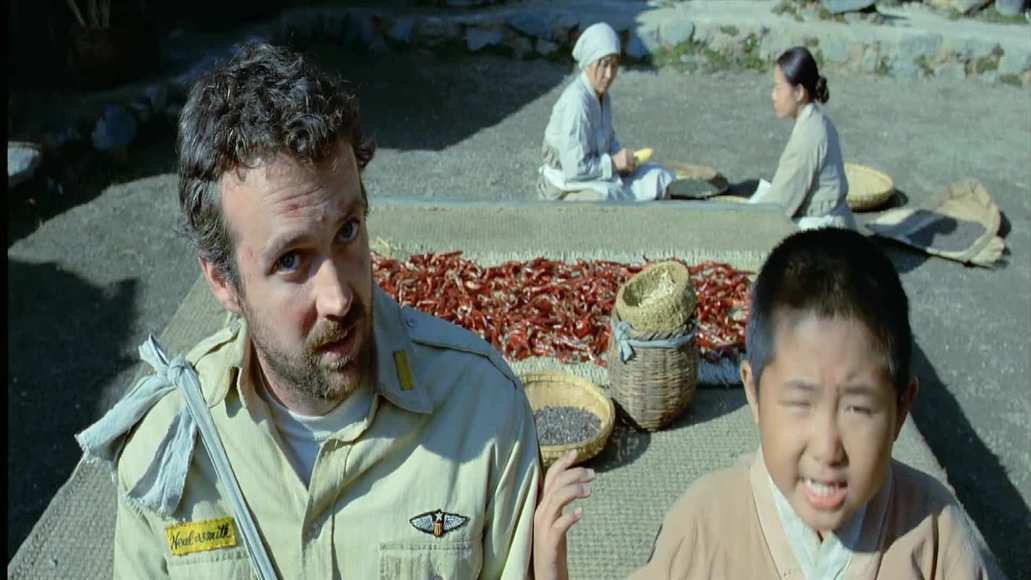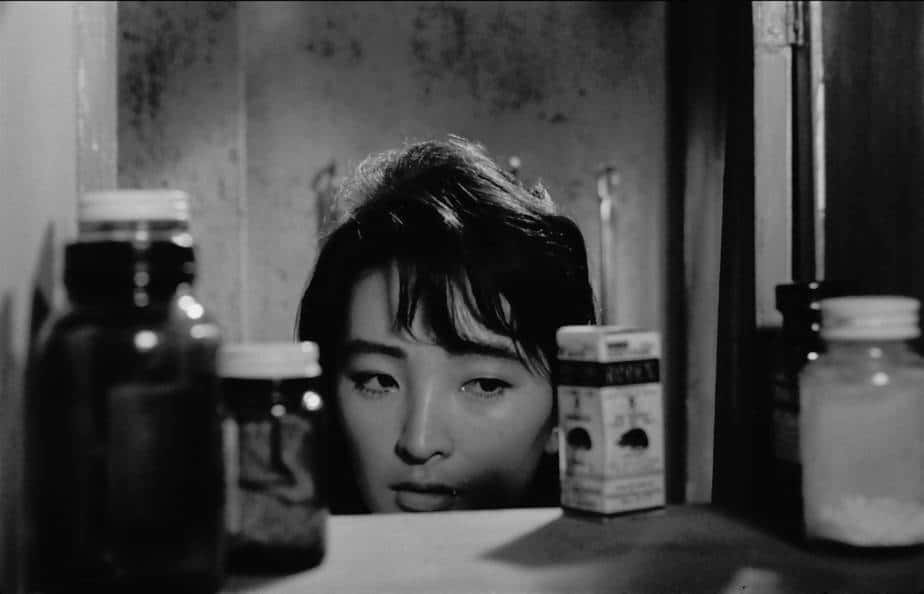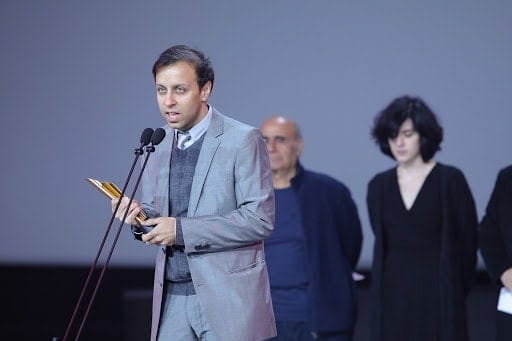Hong Eui-jeong is a South-Korean director, screenwriter, producer and cinematographer. After graduating from Korea National University of Arts in visual design, she served in various positions, from cinematographer to assistant director for many commercials and music videos. She also studied and worked in London, where she graduated in cinematography at London Film School. In 2016, she directed her first short, a science-ficton film named “Better Than Tomorrow”, which won Best Student Film at London Short Film Festival. She also wrote her first screenplay the same year, which was selected as one of the top 12 projects at Venice Biennale Collage 2016/2017. After that she directed the short “Habitat”, which tells a story about a possible united Korea in the future and which premiered at Busan International Film Festival 2018.
In 2020 she released her feature debut “Voice of Silence”, which was screened at many international festivals, such as Far East Film Festival and Fantasy Filmfest. “Voice of Silence” won the Cheval Noir Award for Best Film at 2021 Fantasia International Film Festival.
On the occasion of “Voice of Silence” screening at Fantasia International Film Festival, we talked with the director about the casting of the film, its cinematography and its theme of speechlessness.
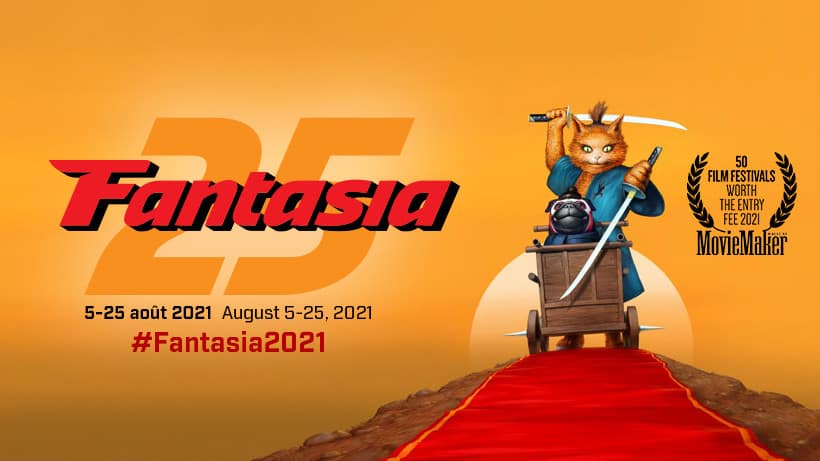
Considering your film deals with the invisible or speechless within society, would you say there are these people within Korean society? If so, who are they?
Can an individual wholly exist without the society surrounding them? Even if someone believes they can, their thoughts, words, and actions cannot be shaped without the social context to which they belong. In this movie, all the characters act in ways that each believes to be right. However, when each individual's beliefs about goodness are added up, it cannot be said that this sum is good for each other. The same applies to the society we live in and to the ways of individuals. Not only the marginalized class, but also those who enjoy a certain level of wealth and education cannot be free from this.
On the other hand, setting the background as Korea's isolated countryside was an intentional choice from the start to reveal the beliefs of mainstream Korean society. I needed the most basic background that had shed its plausible shell. While living abroad, I noticed that everyone's behavior and speaking style are constrained by the boundaries of the social life they lead. In that regard, leaving the Korean society can let one become an observer of the social beliefs that the Korean group uses unconsciously. In other words, by showing those outside of mainstream and how the environment mirrors mainstream beliefs, and by arranging characters who maintain a sense of ordinary life despite the unusual setting, I hoped to make the audience feel like an observer who can sympathize with the characters to a certain point, while keeping an appropriate distance.
Most people, whether at school, at work, or in a country, live their lives the way their society demands, and when they cannot, they are thrown out, and when facing a new situation, they may have to forsake or change their beliefs. It occurred to me that this was related to the theme of human “survival”. Therefore, to further develop this subject, the characters in this film can only have beliefs and a lifestyle that are reinforced in one direction. Like Tae-in who cannot even say what he wants to say, or Cho-hee who, despite being a child, only says what others want to hear, or Chang-bok, who repeatedly explains goodness separately from his actual behavior. Since we are all imperfect to some extent, I thought that we could project ourselves on these flawed characters. In addition, through showing how the senior-junior hierarchy in Korea impedes comfortable and progressive speech and communication, I wanted to expose how twisted we grow in the Korean environment. That is why everyone, including adults who enforce “kindness”, seniors who teach juniors and new employees who just started their job, all have something to relate to in this movie.
For that reason, the characters' occupations and lifestyles were staged in a manner that maintains the familiarity of everyday life so that their speech and behavior look like ours. As a result, I wanted us to project ourselves onto them and see how we adapt to our environment as we live and reflect on how the process of surviving in it affects our moral code. I wanted these characters, designed to tell a story about survival, to be seen as symbolizing all of us.
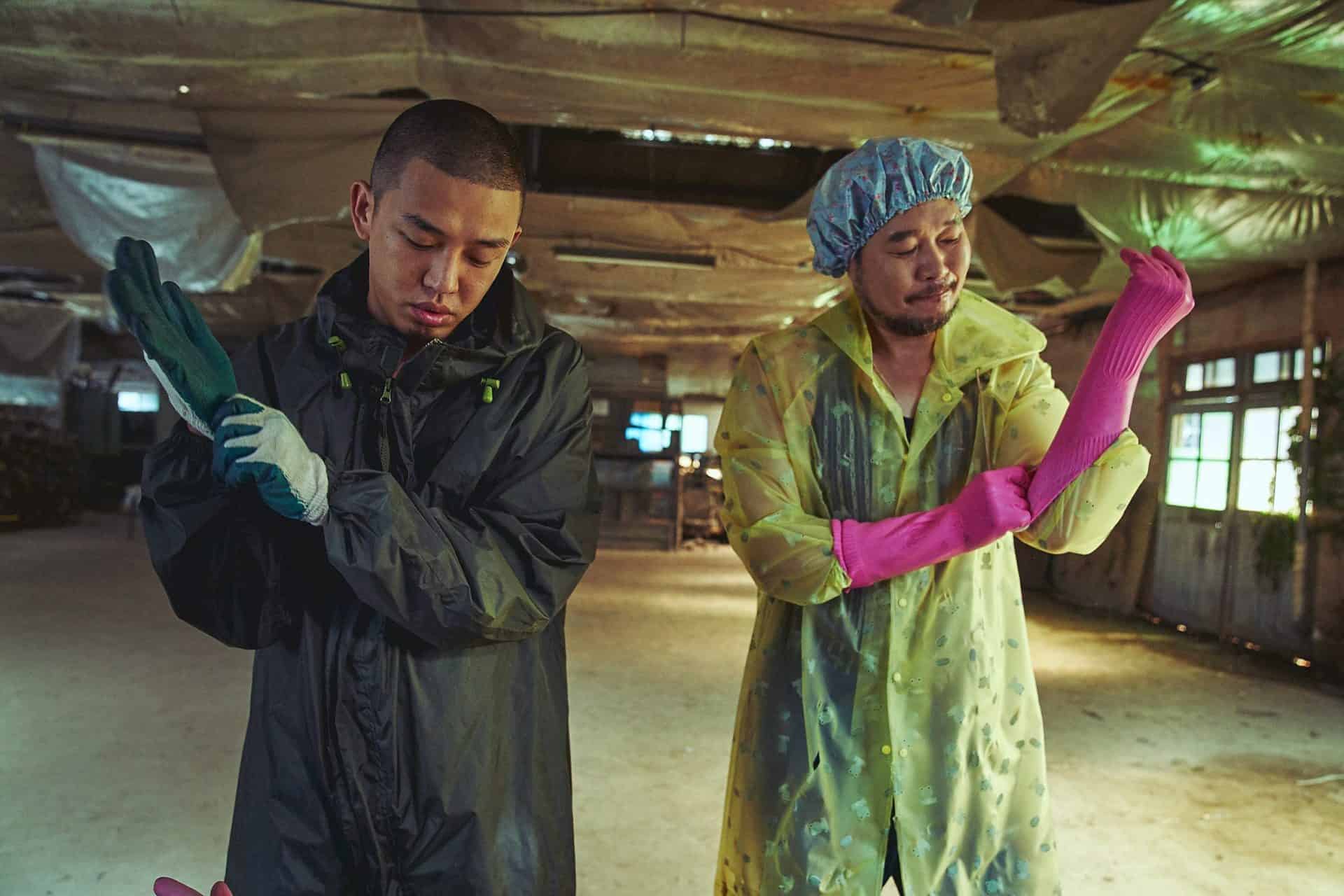
Both your main actors, Yoo Jae-myeong and Yoo Ah-in, are incredible in their roles as Chang-bok and Tae-in. Could you give us some insight into their casting and what they contributed to the project?
Even though he is an adult, I wanted Tae-in to have a somewhat young side, like a less mature boy. Yoo Ah-in clearly had this boyish image that Tae-in needed, so I think it was a very fortunate casting. Yoo Ah-in is not only excellent in acting, but he also has an image that creates time and space around the narrative. Thanks to him, “Voice of Silence” could have a more daydream-like fantasy atmosphere, and though I had worries about having a character without lines, actor Yoo Ah-in's distinctive texture filled up the movie, leaving no void, despite the absence of lines. If the word “persuasiveness” were a person, it would be Yoo Ah-in.
Yoo Ah-in's interpretation of Tae-in's character was new and vivid beyond the script's suggestion. At each meeting, through his ideas and suggestions, I had the experience of discovering and learning about aspects of Tae-in, a character whom I created in the screenplay, that were till then unknown to me. For example, I first envisioned Tae-in as a short and skinny man but talking with actor Yoo Ah-in made me realize that the image of the adult child I wanted Tae-in to have would rather be expressed more appropriately by a man with a larger frame and weight with child-like facial expressions and behavior, and ultimately, Tae-in was born with a look that was different from the feel in the scriptwriting stage.
In the case of Chang-bok, he had to be portrayed as a character who preserved the coziness of ordinariness, so he had to be a warmhearted and endearing character who could be loved by the audience no matter how terrible his actions or the situation are. Regarding actor Yoo Jae-myeong who performed Chang-bok's character, he is an actor who has already played numerous characters, from the friendly neighbor to the warm and playful father, in various movies and TV series.
He is also a classically trained actor who has been performing in theatre for ages. In that regard, I already knew that this actor could create this lovable character we could not hate, and he had a deep understanding of the character and a special affection for the script, so I was gratefully able to film with his support. In particular, he accurately understood the black humor that I wanted to keep in horrifying scenes, and therefore, the film could have humor in the timing I wanted. Using his honed skills, he could fine-tune the most subtle rhythm and all those moments can be said to his contributions.

Can you also tell us something about working with Moon Seung-ah and how you approached some of the more difficult scenes?
Moon Seung-ah has an exceptional ability to understand and immerse herself in the character she plays. From the casting stage, she showed superior acting skills. Anticipating that there could be frequent changes in lines and actions depending on the situation on set, I presented, from the first audition, improvised lines that differed from the content prepared by participants to which Moon Seung-ah responded flexibly and appropriately while keeping character. Looking at this, I became determined to work with the actress, which led me to cast her.
I found out later that she had already won the Best Actress Award for her performance in the film “Scattered Night” at Jeonju International Film Festival in South Korea, outshining adult actresses.
Since actress Moon Seung-ah already had experience working on feature film sets, she took my suggestions such as modifying lines on set without much difficulty, but before that, I think the fact that we met two or three times a week to analyze the script and practice every situation in each scene for about a month helped both of us to understand and further develop this character.
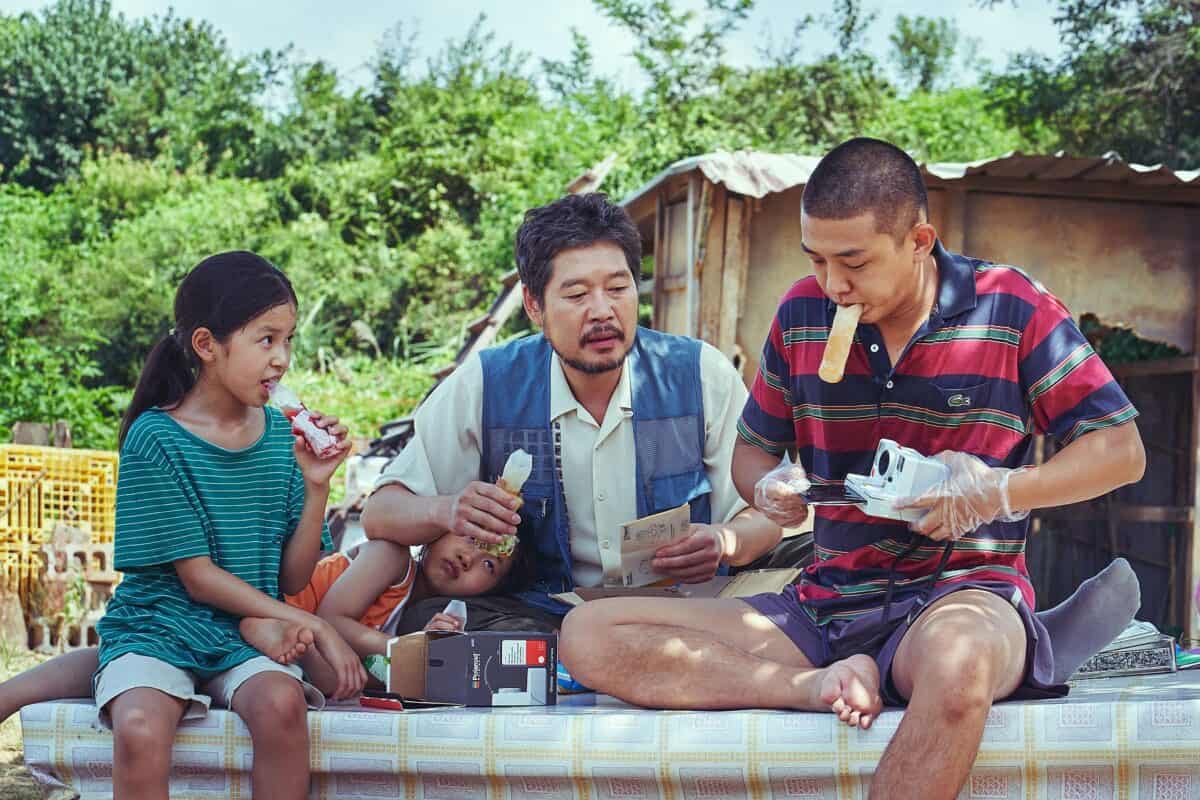
Despite its grim themes, “Voice of Silence” strikes me as a very bright film with regard to its visuals. Could you explain the idea behind that contrast?
In most cases, the tone and manner of a movie help the plot as the story progresses. However, in this film, I wanted to show that the line between absolute good and evil can be blurred for survival, and through this situation, I wanted to question our universal judgement, so I experimented with a method where the plot and tone and manner clash and interfere instead of helping each other.
For example, when we watch a movie of a certain genre, we naturally recall its characteristic tone and manner, along with the atmosphere. Likewise, when you think of a kidnapping crime drama, you naturally imagine a dark atmosphere. Conversely, in the plot of “Voice of Silence”, the hero and main characters are clearly defined as criminals and follow the process of committing crime, but the verdant environment, sunny weather, somewhat humorous music and the cinematographic tone and manner, including the characters' friendly and polite way of speaking and behaving, had to convince the audience that those criminals might actually not be bad people.
Under those circumstances, I imagined that coming to a clear judgement or conclusion would be difficult, and in order to maintain this, I strived to direct the film such that the plot and tone and manner would collide while maintaining a certain balance without shifting too much in either direction.
Why does the underworld, or rather its hierarchy, mirror the “normal” world in “Voice of Silence”? Was that intentional?
As I mentioned in my answer to the first question, representing our daily life through the underworld is a device that allows me to ask the question about morality and judgement that are missing in our everyday life. We mistake the world we live in as being “normal” but in reality, it is hard to qualify anyone's life as normal.
Living in a capitalist society, the moment you become a consumer, you may be sympathizing with potential crimes (environmental destruction and labor exploitation, etc.). However, you live your life with a sense of security because you keep a distance by not committing crimes with your own hands. The underworld is a depiction of what comfortable, ordinary life would be if we peeled off one layer. In my mind, committing terrible crimes with a friendly face without realizing its horrible nature was necessary to illustrate so that we can see our true selves.
The underworld has multiple faces, but I chose to treat the topic of “abduction” because I wanted to tell a story about “human worth”. For example, Cho-hee was born to a family where sons are more valued, and in order to receive enough affection, she had to increase her worth by acting like a grown-up and living with the mask of a “kind” older sister who takes good care of her younger brother, which is her survival method.
For Cho-hee to be treated equally without gender discrimination, I needed to create a situation where she would be treated as “meat”, and accordingly, the subject of kidnapping was found. You would expect her be treated most appropriately at home, but ironically, Cho-hee is treated fairly without gender distinction only when she is commodified as a “child body with sellable organs” after being abducted. In addition, during the transaction, younger children with blood type O are privileged, and in this situation, the judgement of human worth starts over again. In the end, it is difficult for Cho-hee to gain importance anywhere.
When applying the standards demanded by society, it is inevitable that many people feel deficient. In my mind, “Voice of Silence” is defined by how flawed characters like us live in a symbolic background where the surface allowing us to live in reassurance is exposed.
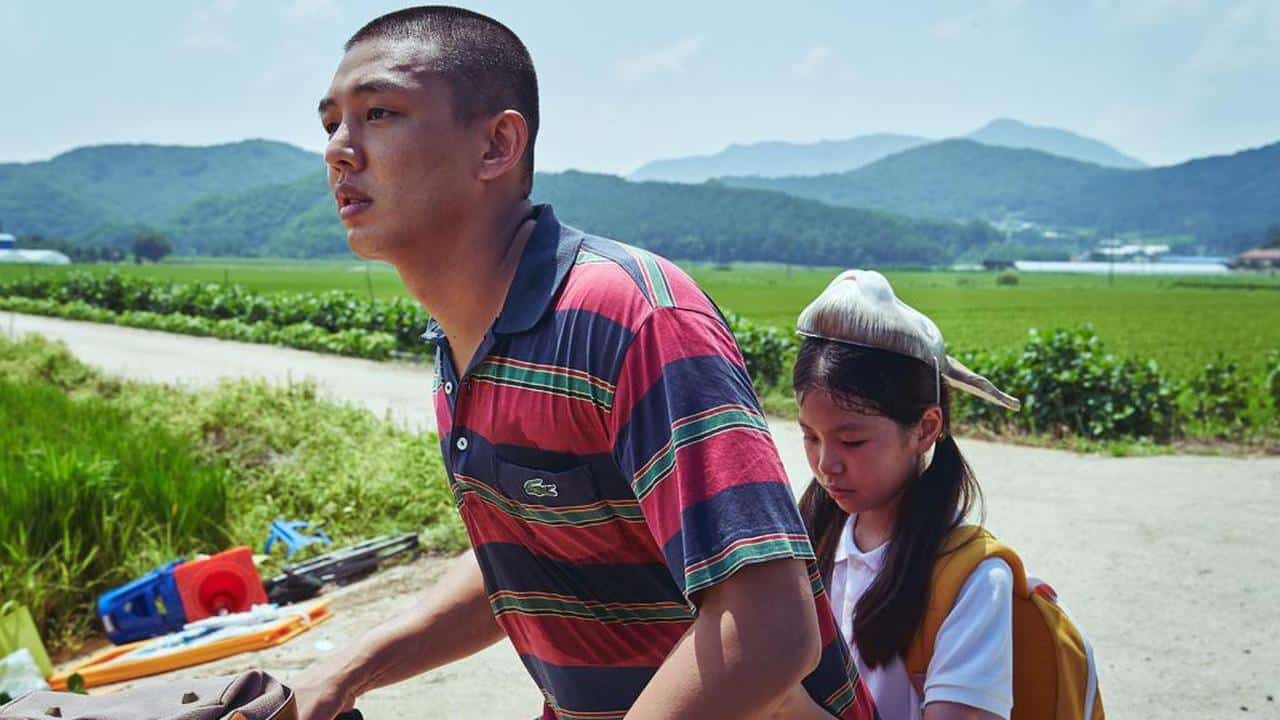
Considering “Voice of Silence” was your feature debut, can you tell us something about the unique challenges of the project and the story?
It seems that the difficulties experienced in the process of convincing numerous people before the script reached our current producer were greater than the challenges of making the film. As I was more often criticized for the film's lack of virtues a typical commercial film should have, rather than on the meaning behind the story, I knew that the process of making this screenplay into a movie would be rough.
However, after meeting CEO Lewis Taewan Kim, the story resolved so easily. I was astonished when he told me to leave the screenplay untouched without a single edit, and truly amazed and grateful for working while receiving protection for the subject of the story. Since the investment method was like one of a commercial film, I know that requests to edit the story and pressure are natural things, but all along the screenwriting stage, the filming process and post-production, there were even requests to reverse the ending consisting of Cho-hee's inaudible line and actions that betray the audience's expectations, which would violate the theme of the movie, but I know that defending the essential parts was not only a difficult task for me, but also for the producer. Thanks to him, I was able to keep the scenes I wanted, which I am grateful for.
Are there any themes or issues within Korean society you would like to explore further in future projects?
I am writing a few stories about how to overcome the trauma of victimization. There seems to be a certain behavioral pattern among people who believe they are right, good and victims. The stories I am composing are based on social beliefs, such as being a victim gives you the right to attack others, the victim is, by definition, righteous and the invaded, virtuous.


